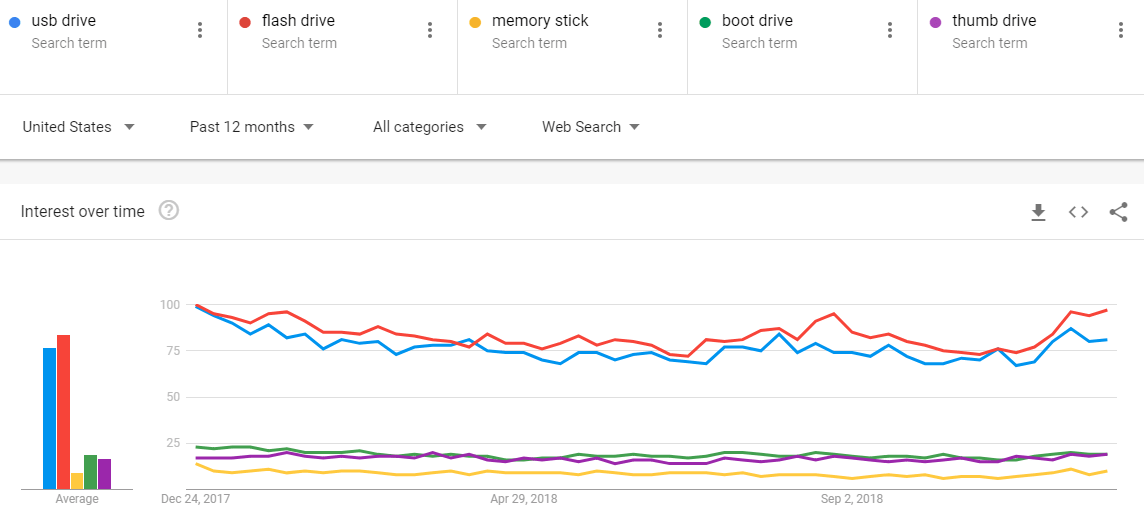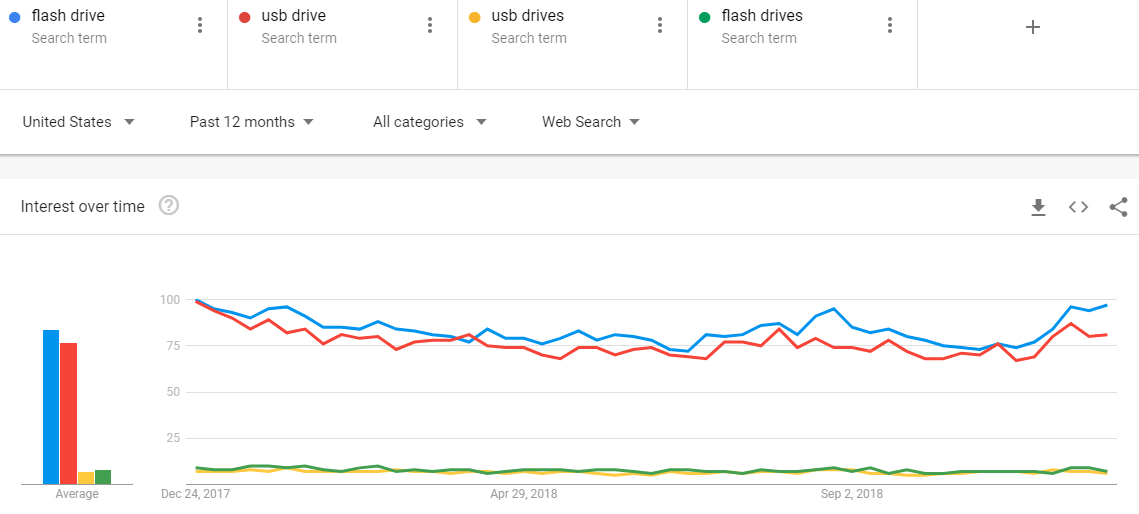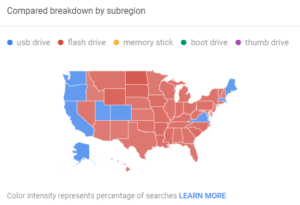This subject is a rewrite of our oldest blog article, first published in 2007. As we travel back to the future, it is amazing how little has changed in this fundamental building block of Word Wars. How a person presents a query is the first thing you learn. This knowledge should be used to develop any tactic or strategy for your website’s PPC, SEO, or Social Media. For it is only understanding of this formation that we can develop tactics that leverage your content.
Word Wars and the TV Game Family Feud are conceptually the same thing. Survey an audience and try to guess how they answered a specific question. In Word Wars, we start out with a question and then guess how they would express that to the search engine. This is called the search query and it’s the reason this topic is so much fun.
Example for Our Discussion
To explore a complex topic we need to reference an example that everyone understands. We picked a common product that everyone owns or at the very least, has used. If you are a geek like me you probably have a drawer full of these.
I have a question for you: How would you search for this product?
Below is a chart with common terms for this product. Is your query on that list? Let’s dive in.
What Google Trends Says:
The current data from Google Trends shows that Flash and USB are the two big ones but others are still significant. Do you see the problem?
It comes back the this basic SEO rule: The more things your page is about, the less it is about any of them. In this example, the more you optimize for USB Drive, the lower you rank for Flash Drive. It’s a string problem in which you pull on one end of a string the other end moves.
 Page Optimization is Impossible – Get over it.
Page Optimization is Impossible – Get over it.
The SEO Industry has a few experts but there are also some less than honorable businesses and individuals, so be careful when you select an expert to work with. If an SEO promises you the first position in Google, they are lying. If they promise it for a small amount of money, then grab your wallet and run for the door. SEO is hard work, full of compromises, research, and content creation. Anybody that really knows how this works will not make a first position guarantee statement. Search Engine Optimization (SEO) is a process of optimizing the page content to improve search engine position. The fatal flaw is that the process begins with the query, not the page. You cannot optimize a page until you know the query. As you will see in our example, and in real life, the query is a list of variables not a single target.
Pick Your Battles
Using our example, you can see that in almost all cases, the search volume drops off rapidly. Since optimization is based on the query, a decision has to be made on the target. Often the right choice is the first answer, but not always. In some businesses, something as simple as a plural form makes a difference. In our example, the plural form is much lower volume. If you are new in the industry and getting crushed on the singular form, it might make sense to go after the plural form first to establish a base. Once you have a good base, you can go up against the companies playing in the larger volume.
 The Big Question
The Big Question
When a prospective customer needs/wants your service or product, what will they search for to find you? In general, people create queries based on their life experiences and the top 2-3 normally make up over 80% of the volume. If you have one answer for a query, you are not done yet. Grab a cup of coffee and think deeper. If you really want to do this right, find somewhere that prospective customers gather and ask them directly. You will be amazed at what you can learn from a few conversations. What you are out to discover is how do people talk about your product or service before they know about you.
Searches Nobody Does
You would be amazed at how many times we have seen sites proudly presented to us as being “First on Google” but with little to no business coming in. What we typically discover is that the site ranks highly for a search term nobody, except the client, searches for. When thinking through your strategy, it is best to think like your customers and this can be challenging. We highly recommend checking Google Trends, your Search Console, and Google Ads data BEFORE deciding what you want to target.
Understand Your Searcher
You have to become one with the audience and live their life experiences and perspectives. All too often, keywords are targeted based on the most senior person in the brainstorming session. This is a disaster, especially if that person is not representative of the target group. Go back to your target personas and ask the team how they would search and why. This is one of the biggest challenges a Word Warrior will face in their career.
Evolve Your Thinking
Queries form in the mind of your prospect where marketing, data, and content collide with wants and needs. This is a very messy process. Whatever your thinking is, I can assure you that it will not be perfect. Talk to those that take early-stage calls for more insights into customer perspectives. Furthermore, look at the data in your search console and Google Ads search queries. Finally, experiment with Google Trends for the big patterns.
Regions are Different
Different regions in the US can have different winners. In our example, you see that the West Coast and a few other random states use the term USB. The rest of the country uses the term Flash Drive. In some businesses, we have found words that vary hugely and sometimes even jump languages.
Language Evolves
Language is not static and you have to adapt your thinking about query formation as this happens. A perfect example of this just happened this year when Google changed from Google AdWords to Google Ads. Here is what happened to the search volume as this change gained traction.



Data Sources
Marketing data is a funny field because we get clues, not facts, which typically come from flawed experiments. Be cautious with what you think you know. We often see people conduct experiments and from the results, they conclude the reason for the outcome. Getting from result to causation is a very long road and some of it is claimed with hilariously small data samples. I read a book a few years ago where the author conducted an overnight test with 4 ads and 11 total clicks. From those 11 clicks, he determined that one ad was better than another. I couldn’t stop laughing! I know, and forever, will use this as an example of how NOT to learn something from data. To prove something, you need to have data large enough that the result is likely to repeat and that is a lot of data. This author clearly did not understand that concept.
There are some great resources to use on your journey. Google trends will give you a big view. The Search Console can give you good insights into your organic traffic. Google Ads (AKA AdWords) can give you some of the best word volumes. Google Analytics is a great resource in all forms of traffic. The industry also has tons of other tools all of which provide another layer of clues but none of them produce facts.
In Closing
What I would like you to take away from this article is that you can move the needle but there is no silver bullet. Language, optimization, query formation are difficult subjects but within them lays great opportunity.
How Search Engines See This Page
To learn more about word clouds click on this image




 Page Optimization is Impossible – Get over it.
Page Optimization is Impossible – Get over it. The Big Question
The Big Question
